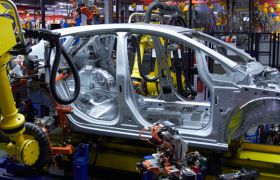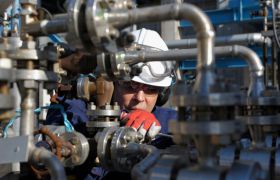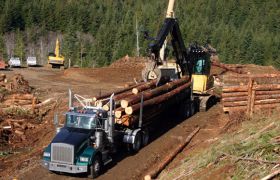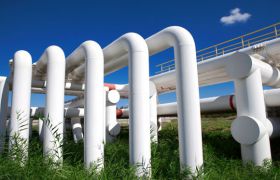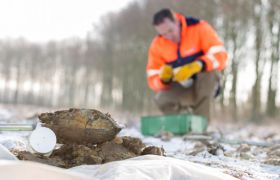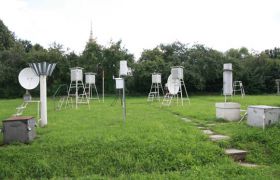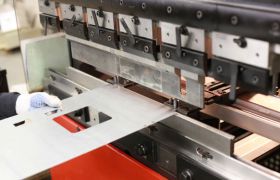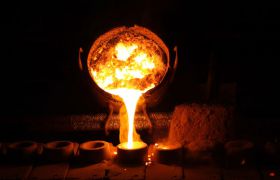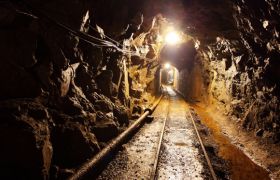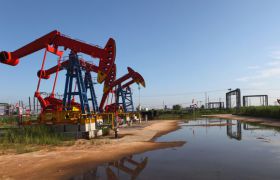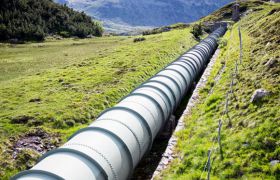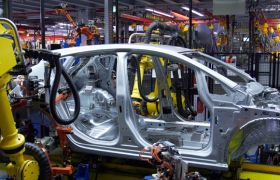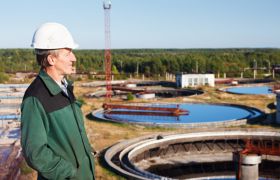Welcome to Indigenous Futures in Engineering, Queen's University
Search
Types of Engineering
There are many kinds of engineering!
Just like music can be sorted into types like rap, rock or country, engineering can be sorted into 7 main areas. Use the drop-down filter to view the different kinds of engineering in each main area.
Aerospace engineers design and build aircraft, spacecraft, aerospace equipment, satellites and missiles. Work done by aerospace engineers has made such things as airplane and space travel possible.
Agricultural engineers look for solutions to problems involving the use of plants, animals and the natural environment. They also develop machinery for growing crops and are involved with bio-energy development.
Biological and Biosytems Engineers work with technology from different places and combine them with engineering design.
Biomechanical and biomedical engineering combine mechanical engineering with the human body. These engineers can build prostheses, develop movement systems for people with spinal injuries, and design advanced athletic equipment.
Building engineers know about all parts of the life cycle of a building. They identify problems and find solutions to improve life within the built environment.
Chemical engineers use chemistry, math and physics to design and use equipment to make chemical products. The fibers in clothing, soaps and detergents, leather, paints and plastics are all designed and produced by chemical engineers.
Civil engineering is one of the oldest types of engineering. It involves planning and building things like roads, railways, airports, harbours, bridges, tunnels and buildings. Civil engineers also make sure water is drinkable and sewage is treated.
Communications engineers work with communications systems and networks. They play a key role in the ongoing development of the Internet.
Computer engineers work with designing and making electronic circuits and devices, in all types of products from smart phones to cars to rockets.
Construction engineers work in all parts of construction projects. They are in charge of the building process from planning through finish.
Electrical engineers are involved in the creation and application of electrical energy: the electricity that lights our homes, helps us cook our food, and powers our machinery. They also work in telecommunications, television and computer technology.
Electromechanical systems engineering focuses on all the things that make electrical and mechanical systems work together. People in this field often work for the automotive, power production or airline industries.
Engineers who specialize in electronic systems work with electronic circuits and devices such as those in computers.
Chemistry plays a role in just about everything.
Engineering chemists use their knowledge of chemistry to solve engineering problems. They work with problems relating to the environment, oil and gas, and materials development.
Environmental engineers develop solutions to problems affecting humans and nature. They work to prevent pollution of the environment and to clean up contaminated soil, water and air.
Food engineers apply engineering to make raw food into safe food products of the highest possible quality. They work in food processing.
Forestry engineers are involved in planning to replace trees cut down, as well as in designing of lumber harvesting and processing equipment.
Gas engineers work with natural gas reserves. They do things like determining the best spot for drilling new wells and operating gas plants.
Geological engineers study natural materials like rock, soil and ground water. They decide the best places for buildings, dams, highways, airfields, pipelines and tunnels, and also help design these structures.
Geomatics engineers keep data about Earth's surface for uses like mapping, navigation and watching for changes in the environment. Much of their data comes from images provided by the network of satellites orbiting Earth.
Industrial and Manufacturing engineers use their training to help companies improve themselves. Industrial engineers work with the organizing of a company, while Manufacturing engineers work on the process of making things. Their knowledge allows them to work in almost every type of business.
Integrated and Unified engineers follow a course in which they study all of the major engineering fields - civil, mechanical, electrical, chemical etc. Engineers with this kind of general background are well placed to work in many industries. Most will choose their area of work only after graduation.
Engineering mathematicians use things like math modeling and methods to solve engineering problems in our world.
Mechanical engineers use math, material science, physics and economics to create machines. Our household appliances, cars, ships and airplanes have been designed, tested and manufactured by mechanical engineers.
Metallurgical engineers study metals. They get metals out of ores, develop new alloys and metals, and produce metal products.
Mineral engineers work in finding minerals like salt gypsum and sulfur. Mineral engineers also work to change raw mineral materials into products.
Mining engineers find minerals in ore beds in the ground that are by manufacturing and energy industries. Mining engineers figure out the size of ore beds and decide if it can be mined. They make plans for the entrances and work space of the mine, design air and drainage systems, and ensure the safety of the mine workers.
Oil engineers work in finding oil reserves. They are involved in such things as drilling new wells and watching that the oil is extracted properly.
Petroleum engineers work with oil and gas. Petroleum engineers are involved in things like finding the best location for drilling new wells and operating oil and gas plants.
Engineering physicists use physics in engineering. They work in power production, astronomy, and the design of spacecraft.
Plastics engineers study polymer materials. They also design machines used to shape plastics.
Production engineers put together systems of people, materials, machinery and money to make goods and services. Their goal is to provide goods and services of high quality.
Software engineers work with software systems and products. They apply both engineering and computer science to design software control systems.
Water Resource engineers protect water supplies and make sure that development does not disturb natural processes and water tables. They help find pollution, control flood damage, and resolve conflicts over water reserves.



